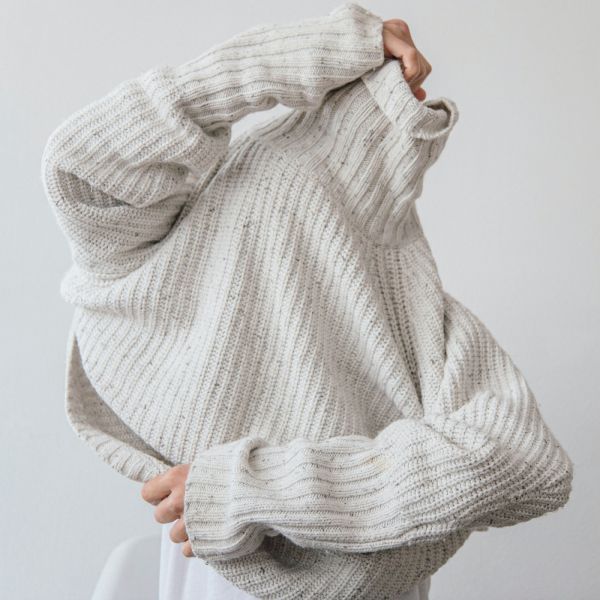Imagine your favorite sweater suddenly shrinking or losing its shape. Well, not only does it lose its charm, but it also becomes uncomfortable to wear, leaving you feeling discomfort and dissatisfied. Similarly, it is important to keep your garments in good shape while minimizing shrinkage, which helps to retain their durability, attractiveness, and comfort.
In this article, we will talk about how to take good care of your clothes.
Understanding Shrinkage: Causes and Effects on Clothing
Keeping clothes in their proper shape is important because it helps you feel confident and stylish when you wear them. Whether it is a tailored suit, a flowy dress, or a cozy sweater, each garment is designed with a specific shape that flatters your body. But sometimes, clothes can shrink, especially when they are washed and dried.

Shrinkage makes clothes smaller and changes their shape, making them tighter and less comfy to wear. Factors like high heat or too much moisture during washing and drying can cause shrinkage. Shrunk clothes might look wrinkled or not as nice as they used to. Clothes made from materials like cotton, mohair, cashmere, and wool are more likely to shrink. Similarly, things like how we wash and dry clothes, and where we store them can also make a difference. To prevent shrinkage, here are some helpful tips for doing your laundry.
Gentle Washing: Techniques to Prevent Shrinkage
Washing clothes incorrectly, like using too much heat or not following the care instructions, can also shrink clothes. To prevent shrinkage, washing clothes gently during the laundering process is important. This helps the integrity of clothing items while avoiding the undesirable reduction in size.
This approach emphasizes the importance of adopting gentle washing practices to safeguard garments made from delicate materials prone to shrinkage, such as cotton, wool, mohair, and cashmere.
Here are some techniques to implement during washing your garments:
- Handwashing is great for preventing shrinkage because it’s gentle.
- Use cold water. Some fabrics like polyester and acrylic might stretch instead of shrinking when exposed to hot water.
- Use mild soap, and pick a gentle cycle on your washing machine to avoid too much movement.
- Only wash clothes when needed. Some items, like jeans, sweaters, suits, and fancy dresses, don’t need to be washed every time you wear them.
- Add a small amount of vinegar during laundry because it can neutralize mineral build-up, soften clothes, and decrease shrinkage.
Proper Drying: Tips for Keeping Clothes Intact

Drying clothes properly is essential for maintaining their integrity and extending their lifespan. Here are some drying tips that will help you keep your clothing looking newer for longer, preserve their quality, and ensure they stay intact wash after wash.
- Hang your clothes to air dry. This keeps their shape and size, so they still fit well.
- Use dry cleaning. Although dry cleaning causes some agitation, the lack of heat and water makes it a safer option for natural fiber clothes.
- Maintained a low heat setting in the dryer, or chose the delicate cycle, to avoid damaging the fabric.
- High heat can be rough on clothes, making them shrink or wear out faster. So, it’s best to use a gentler setting.
- Another good way to dry clothes is by hanging them outside in the sun. However, make sure to avoid direct sunlight, which can make them turn yellow and shrink because of the heat.
Choosing the Right Fabric: Shrink-Resistant Materials for Your Wardrobe
Shrink-resistant materials are fabrics specially designed to withstand shrinking, maintaining their original size and shape even after multiple washes. They get special treatments during the manufacturing process to enhance their durability and resilience against shrinking. Listing out some common shrink-resistant materials:
Polyester: Polyester fibers have a high resistance to shrinking due to their synthetic nature. Similarly, These fabrics frequently hold their color and texture well, further enhancing their longevity.
Acrylic: Acrylic fibers, like polyester, are synthetic and don’t shrink easily like natural fibers such as cotton or wool. Acrylic clothes are soft, warm, and don’t wrinkle much, so they’re good for lots of different types of clothes.
Nylon: Nylon doesn’t shrink as much as cotton or wool because it’s made from synthetic materials. Its structure helps it keep its shape and size, even after being washed and dried many times. Also, nylon is stretchy, which helps it resist shrinking even more.

Storage Solutions: Preventing Shrinkage Between Wears
Good storage is important for keeping clothes nice between wearing them. Folding them neatly or hanging them on the right hangers helps them keep their shape and stops them from getting squished, which can make them shrink. Here are some guides to store your clothes properly.
- Storing clothes in cool, dry places and not cramming them into closets can help stop them from getting messed up.
- Storing clothes in a clean, dry place helps stop moisture buildup, which can make clothes shrink, especially cotton and wool.
- Avoid putting them in places with lots of moisture, like bathrooms.
- Make sure there is enough space in closets or drawers. This lets clothes breathe and stops them from rubbing together, which can damage them and make them shrink.
Frequently Asked Questions
1. What are some common causes of clothes shrinkage?
Clothes made from materials like cotton, mohair, cashmere, and wool are more likely to shrink. Factors like high heat or too much moisture during washing and drying can cause shrinkage. Similarly, things like how we wash and dry clothes, and where we store them can also make a difference.
2. Should I wash my clothes in hot or cold water to avoid shrinkage?
Wash your clothes in cold water. Some fabrics like polyester and acrylic might stretch instead of shrinking when exposed to hot water.
3. Are there specific fabrics that are less prone to shrinking?
Yes, Polyester, Acrylic, and Nylon don’t shrink as much as cotton or wool because they are made from synthetic materials.
Also read, Here Are 10 Ways You Can Use Baking Soda and Hydrogen Peroxide to Clean Your House!
